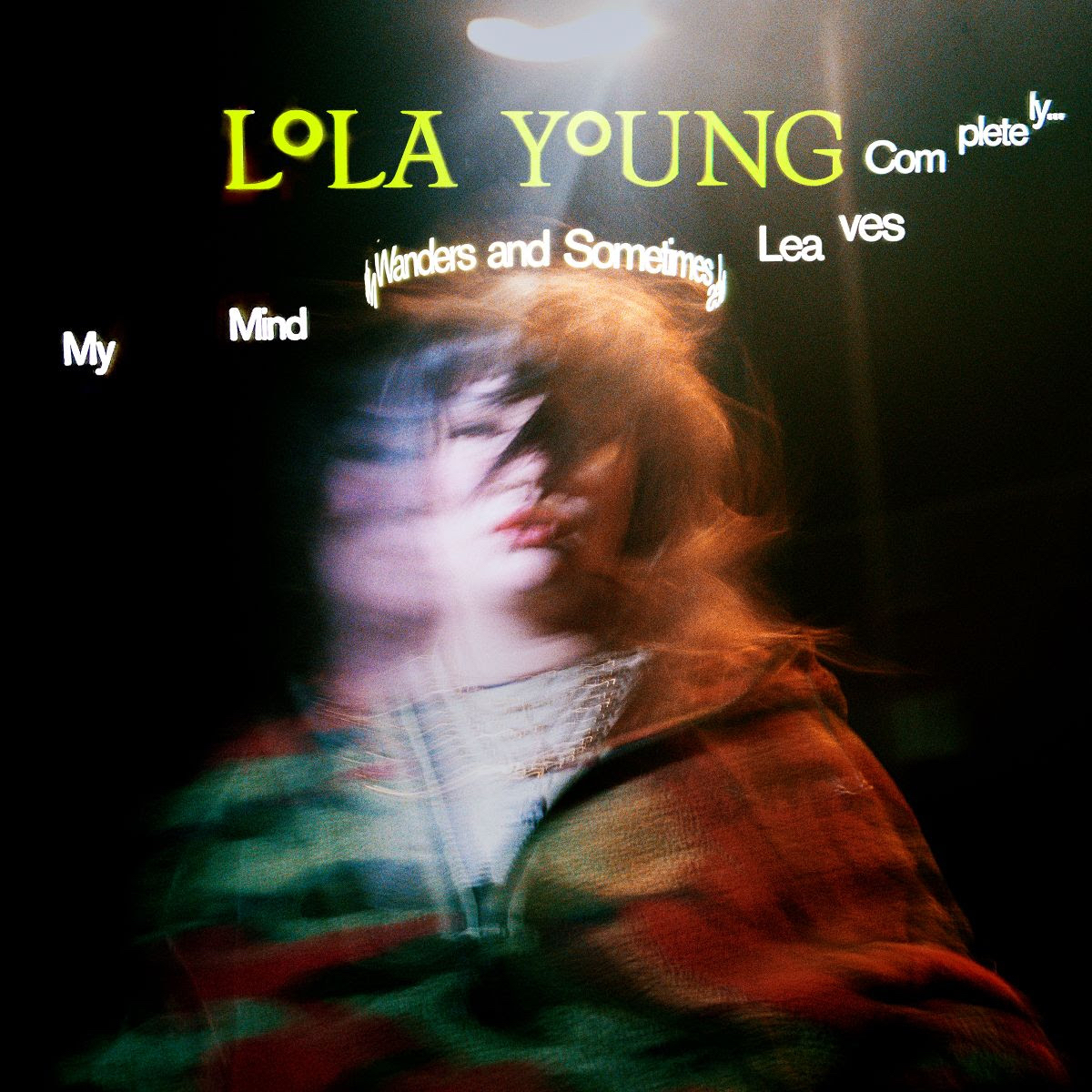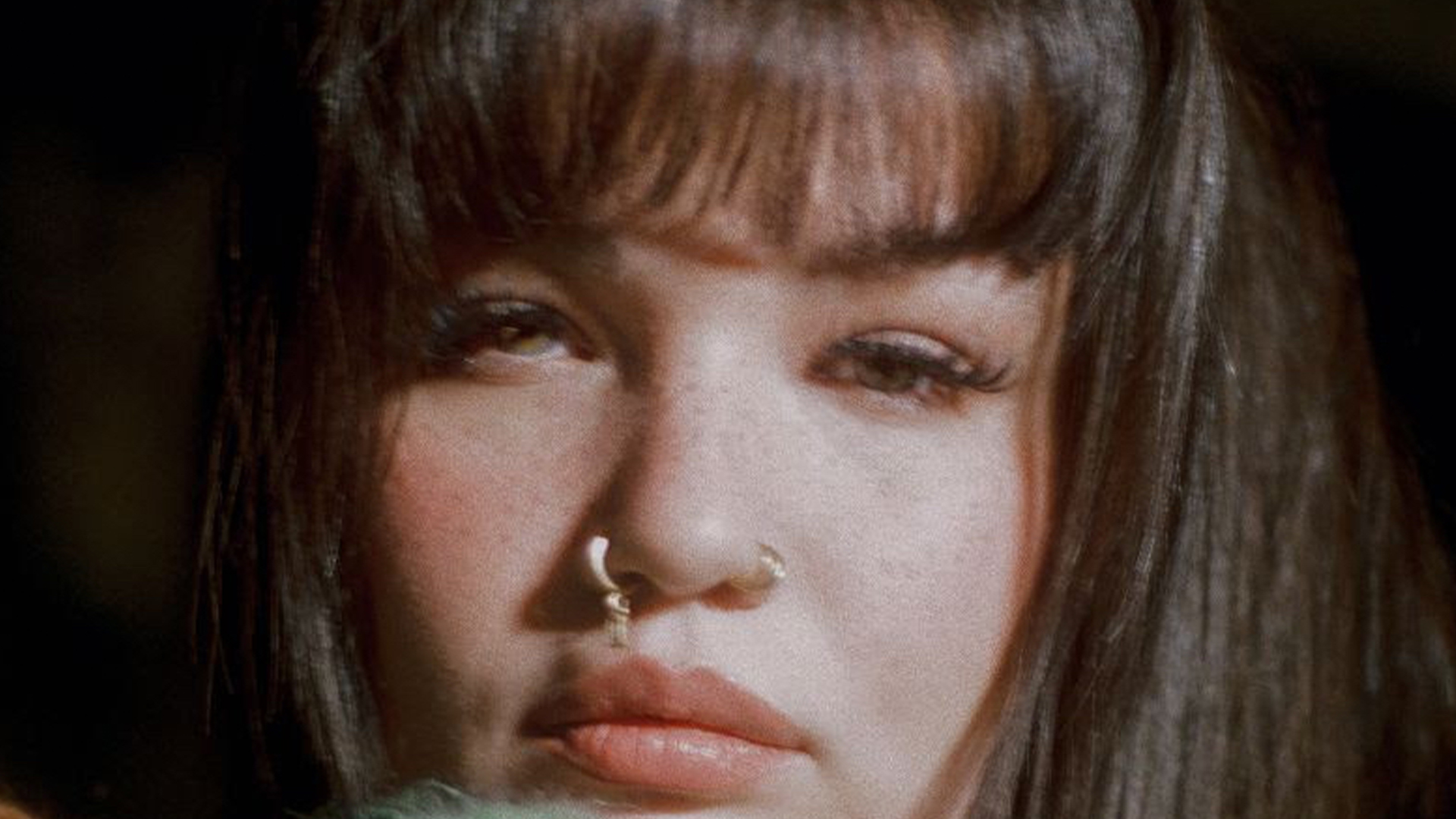★★★★☆
“I turn the lights down, throw the towel in and feel pretty much nothing”, 22-year-old Lola Young croons on the opening track to her debut album, My Mind Wanders And Sometimes Leaves Completely. Young captures the numb mood of gen-Z vividly, and it’s one already weary of love, life, consumerism, the internet and everything in between. The hymnal ‘Stream Of Consciousness’ is probably one of the saddest – and best – tracks you’ll hear all year. “This isn’t a stream of consciousness,” Young sings. “This is more like a big fat fucking no one asked.”
BRIT school-alumni Young has worked with some heavy hitters on this one – like Adele collaborator Paul Epworth and frequent Frank Ocean favourite Malay – but her’s is a distinctive sound that’s rooted in the darkness of the inner-city. She frequently fuses jazz with hip-hop, pop with spoken word elements (think The Streets’ Mike Skinner), and her music digs deep into far-ranging themes like loneliness, depression, capitalism and cheating – sometimes all in the same song.
“The child in me has been and gone”, Young sings at the start of an album that pains its way from innocence to experience at light speed. There are empty nights at clubs, late-night car rides and lonely days with a young woman desperate for love and hoping there’s more to life than what’s currently on offer. “There’s 21 reasons as to why I’m here / But like 99 reasons as to why they’re just no meaning (that’s quite depressing),” she quietly explores on ‘Stream Of Consciousness’.

‘Revolve Around You’ is lyrically stunning and sees Young dismantling an unhappy relationship with a partner who doesn’t understand her mental health issues. “I know I can be miserable, I thought that was part of the deal”, she sings, before speaking with a wry laugh: “You said I should read this book called ‘How to be Happy’ and I think that was a bit of a dig.” Young has spoken candidly about her mental health issues in the past – she suffers from a rare schizoaffective disorder – and here she calls out a lack of empathy.
Young has said her condition is a bit like a superpower, a place where she can, on occasion, tap into creative areas of the brain few can – and once there, ideas tumble out. On jazzy album standout ‘Pretty In Pink’, you can perhaps see why. Like many of the tracks here, it’s quite sonically sparse at the start, allowing Young’s big, soulful voice to soar, but towards the end it veers into a string-led musical dreamscape sequence with delicate electronic layering that recalls some of Bowie’s later work. The unusual time signature of the song’s piano creates an eerie, off-kilter mood – something that wouldn’t feel amiss on a recent Radiohead album.
‘Money’ is a searing dig at capitalism, specifically at rich kids who spend their money badly, “crushing pills on leather seats” in a world where it’s “raining cocaine”. Its unsettling hip-hop underscore helps create the shadowy mood on a track that juxtaposes the excess of some with the suffering of others now, at a time when the extremes of wealth and poverty feel starker than ever. “I’m falling out of love with life,” Young sings on ‘Pretty In Pink’, and with subject matter as heavy as what this song covers, it’s easy to see why.
‘What Is It About Me’ and ‘Annabel’s House’ are where Young’s vocals soar the most and are probably the most Adele-like, but the lyrics and music here are darker than anything you’d find on the latter’s albums. The crushing ‘Semantic Satiation’ is a burn to a partner who love-bombs: “You said you love me so many times I forgot the meaning”… “I’ve for a long list of you being a dick”, she hits back at his wrongs. Many tracks explore body image against the male gaze, egos and toxic masculinity too, and can often prove a crushing listen.

Photo: Charlotte Patmore
It ties into how much of the album explores how women become lost in relationships to men too, like on – ‘Revolve Around You’ and ‘Annabel’s House’ –“You tell me you want me and spit in my mouth”, she sings, as a partner leaves her soon after to return to his other girlfriend. On ‘Black Cab’, a lover makes a quick exit without giving a reason, leaving her self-confidence in shreds. “You took a black cab but it felt like a back stab.”
Lola Young said of the album that it’s her “journey towards being a woman and figuring out who I am. It’s almost me talking to myself, addressing the difficulties.” Playing this album often feels like listening to a secret, diary-like confessional; it almost feels too intrusive to listen to. But these are feelings many women, both young and old, will recognise: the woman changing before her own eyes in a judgemental society; the woman unhappy in an all-consuming relationship; the woman desperate to be treated as a man’s equal.
This is a brave album with so much depth. With a debut as powerful as this, Lola Young feels like a formidable and bold new talent.





